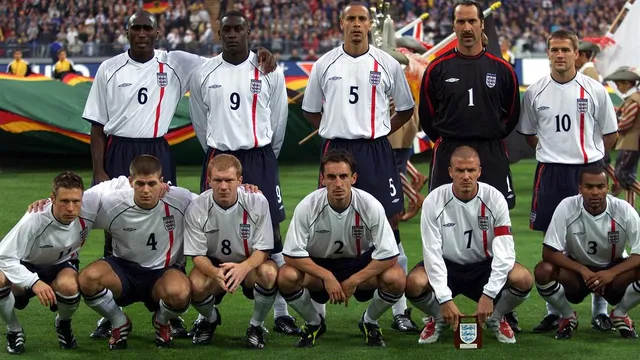
23 years since England’s 5-1 victory over Germany in 2001
2024-09-01 12:37- On September 1, 2001, England defeated Germany 5-1 in Munich, with Michael Owen scoring a hat-trick.
- Key players from that match, including Beckham, Gerrard, and Ferdinand, have since transitioned into various roles in football.
- The victory remains a significant moment in English football history, influencing the careers of many involved.
Express your sentiment!
Insights
On September 1, 2001, the England men's national football team, under the management of Sven-Goran Eriksson, achieved a remarkable 5-1 victory against Germany in Munich. This match was significant as it marked a turnaround for England, who had previously lost to Germany 1-0 in a match before the demolition of the old Wembley Stadium. Michael Owen's hat-trick, along with goals from Steven Gerrard and Emile Heskey, showcased England's attacking prowess and resilience. The match was pivotal not only for the players but also for the future of English football. The victory helped to boost the morale of the team and its supporters, establishing a sense of confidence that would carry into subsequent matches. Key players from that night, such as David Beckham, Paul Scholes, and Rio Ferdinand, have since transitioned into various roles in football, including punditry and management. In the years following the match, many of the players have remained in the public eye, with some, like Beckham and Gary Neville, becoming prominent figures in football broadcasting and club ownership. Others, like Steven Gerrard, have taken on managerial roles, with Gerrard currently managing Al-Ettifaq in Saudi Arabia. The legacy of this match continues to resonate in English football, serving as a reminder of a historic night that not only defined a generation of players but also set the stage for future successes and challenges within the national team.
Contexts
On September 3, 1939, Britain declared war on Germany following the latter's invasion of Poland, marking a significant escalation in global conflict. Prime Minister Neville Chamberlain expressed disappointment over the failure of peace efforts, highlighting the tense political climate of the time. King George VI emphasized the seriousness of the situation, as the nation braced for the realities of war. The declaration of war was met with a mix of apprehension and exhilaration among the British public, who were prepared for potential air raids and the challenges that lay ahead. This moment marked the beginning of a prolonged and devastating conflict that would reshape Europe and the world. In a more contemporary context, Peter Wright's recent victory in Germany serves as a reminder of the competitive spirit that can emerge in sports, even in a country with a complex history with Britain. Wright's comeback from a 5-2 deficit against Luke Littler, culminating in a 146 finish, showcases resilience and determination, traits that resonate with the historical struggles faced during wartime. These events, both historical and modern, reflect the enduring nature of competition and conflict, whether on the battlefield or in sports arenas, illustrating how history continues to influence contemporary narratives.